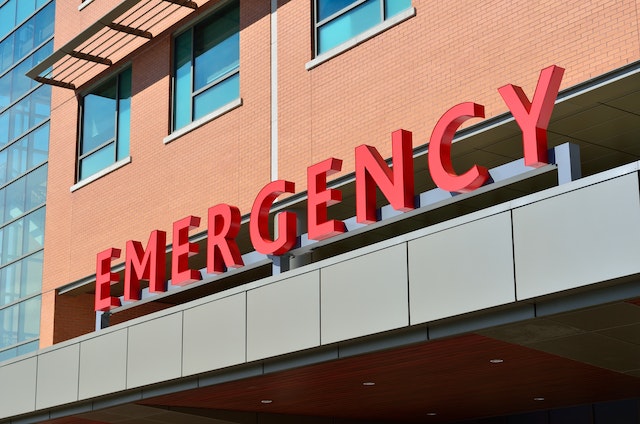Call Today to Schedule an Appointment: 212-319-5282
Anaphylaxis: Causes and How to Respond
 In this blog post, we will discuss what anaphylaxis is, what causes it, and how to respond in case of an emergency. Anaphylaxis is a severe, potentially life-threatening allergic reaction that requires immediate medical attention. It can happen quickly, within minutes or even seconds, and can affect multiple organs in the body.
In this blog post, we will discuss what anaphylaxis is, what causes it, and how to respond in case of an emergency. Anaphylaxis is a severe, potentially life-threatening allergic reaction that requires immediate medical attention. It can happen quickly, within minutes or even seconds, and can affect multiple organs in the body.
What is Anaphylaxis?
Anaphylaxis is a severe allergic reaction that can cause a range of symptoms, including:
- Skin reactions such as hives, itching, and flushing
- Swelling of the face, lips, tongue, and throat
- Difficulty breathing, shortness of breath, or wheezing
- Chest pain or tightness
- Abdominal pain, nausea, or vomiting
- Dizziness or fainting
These symptoms can develop quickly and progress rapidly, making it essential to seek medical attention immediately.
What Causes Anaphylaxis?
Anaphylaxis occurs when the body’s immune system overreacts to an allergen. The most common allergens that can cause anaphylaxis include:
- Food, especially peanuts, tree nuts, shellfish, and dairy
- Insect stings, such as from bees, wasps, and hornets
- Medications, including antibiotics, aspirin, and chemotherapy drugs
- Latex, which is found in gloves, balloons, and other products
- In some cases, exercise, cold weather, or emotional stress can trigger anaphylaxis
How to Respond to Anaphylaxis?
Anaphylaxis is a medical emergency that requires prompt treatment. If you or someone around you experiences symptoms of anaphylaxis, follow these steps:
- Call 911 or your local emergency number immediately.
- If the person has an epinephrine auto-injector (such as EpiPen), use it right away as directed.
- Make the person lie down and elevate their legs if possible.
- Loosen tight clothing and cover them with a blanket.
- Do not give anything to eat or drink, as it can obstruct the airway.
- Monitor the person’s breathing and be prepared to perform CPR if necessary

Preventing Anaphylaxis
If you have a history of anaphylaxis or severe allergic reactions, it’s crucial to take steps to prevent future episodes. Here are some tips:
- Identify and avoid triggers: Work with an allergist to determine the specific allergens that cause your anaphylaxis and learn how to avoid them.
- Carry an epinephrine auto-injector: Make sure to have your epinephrine auto-injector with you at all times and know how to use it correctly.
- Wear a medical alert bracelet: A medical alert bracelet can inform others about your anaphylaxis and provide emergency contact information.
- Develop an emergency action plan: Work with your allergist to develop an emergency action plan that outlines the steps to take in case of anaphylaxis.
Causes & How to Respond to Anaphylaxis: Conclusion
In conclusion, anaphylaxis is a severe and potentially life-threatening allergic reaction that requires immediate medical attention. Understanding the causes and symptoms of anaphylaxis is important in order to prevent and respond to it effectively. If you or a loved one has experienced anaphylaxis, it is important to seek medical attention right away and follow up with an allergist for further evaluation and treatment.
At Allergy, Asthma and Sinusitis P.C, Dr. Boyan Hadjiev provides comprehensive allergy testing and treatment services, including immunotherapy, medication management, and personalized care plans tailored to each patient’s unique needs. With his expertise and experience, Dr. Hadjiev can help patients identify their specific allergens and develop strategies to avoid them, as well as provide emergency plans and epinephrine auto-injectors to prevent and manage anaphylaxis.
If you or a loved one is experiencing allergies or has a history of anaphylaxis, do not hesitate to contact Dr. Hadjiev and his team at Allergy, Asthma and Sinusitis P.C. They are committed to providing the highest quality care and helping patients live healthy, allergy-free lives.
Contact them today to schedule a consultation and take control of your allergies.
Allergy, Asthma and Sinusitis P.C
Boyan Hadjiev, MD
30 East 40th Street
Suite 1200
New York, NY 10016
212-319-5282
Serving all of New York City and the Tri State Area including Zip Codes: Top Allergist NYC Midtown, Chelsea and Clinton: 10001, 10011, 10018, 10019, 10020, 10036 | Gramercy Park and Murray Hill: 10010, 10016, 10017, 10022 | Greenwich Village and Soho: 10012, 10013, 10014 | Lower Manhattan: 10004, 10005, 10006, 10007, 10038, 10280 | Lower East Side: 10002, 10003, 10009 | Upper East Side: 10021, 10028, 10044, 10128 | Upper West Side: 10023, 10024, 10025
